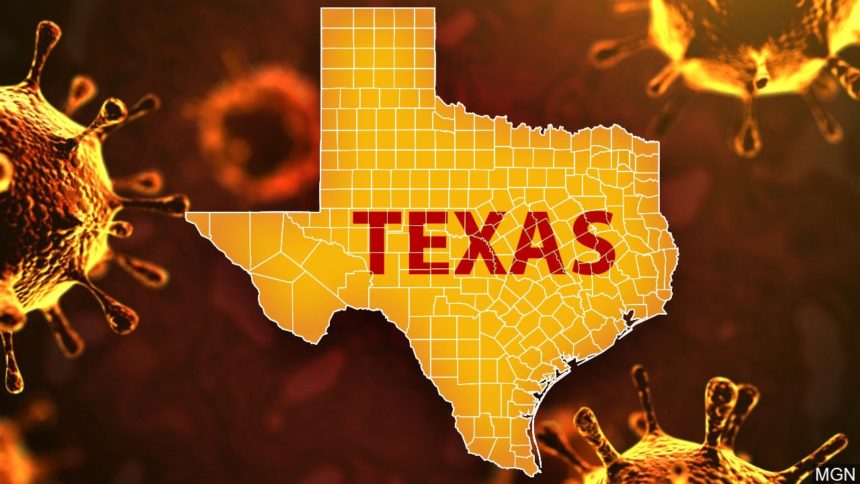Medical expert says Texas is next virus hot spot due to slow reaction

BOSTON, Massachusetts -- The cornavirus pandemic has spread rapidly, with 100,000 additional confirmed cases in the U.S. this past week alone, according to data compiled by Johns Hopkins University. Part of the U.S. and the global community have been trying to combat this spread of the novel coronavirus is by instituting measures such as social distancing, travel restrictions, school closures, closure of nonessential businesses, and in the most extreme cases, statewide stay-at-home orders.
China and South Korea instituted similar policies and were able to control the disease spread in their countries. But the U.S. has noticeable state-to-state differences in how the pandemic is being handled. California Gov. Gavin Newsom issued a sweeping statewide stay-at-home order on March 19.
On the other hand, Texas took a much slower approach, with Gov. Greg Abbott finally instituting an order to close all non-essential businesses on March 31.
Florida Gov. Ron DeSantis in particular has received criticism for his sluggish promotion of social distancing, such as not closing down beaches despite crowds gathering, delays in closing down businesses and resisting issuing stay-at-home order. He ultimately reversed his position on April 1, issuing a stay-at-home order after discussion with the president.
Now, experts are saying that these scattered state-by-state policies may result in new coronavirus hot spots, warning the uptick in infections may soon overrun local health care systems.
"I think Texas is going to be the next hot spot. We can already see the cases starting to increase, it is start of an exponential rise," Dr. John Brownstein, an epidemiologist at Boston Children’s Hospital, told ABC News. "Any intervention we do now will take weeks to see the impact."
Dr. Scott Gottlieb, former commissioner of the Food and Drug Administration, predicts that Florida is also at risk, tweeting, "Florida continues to show an acceleration in new #COVID19 cases, with Miami as one of a number of epicenters of spread."
Experts agree that states that have not done so yet should impose stricter social distancing and policies to reduce mobility. Their stance, they say, is backed up by new data that finds social distancing measures work.
